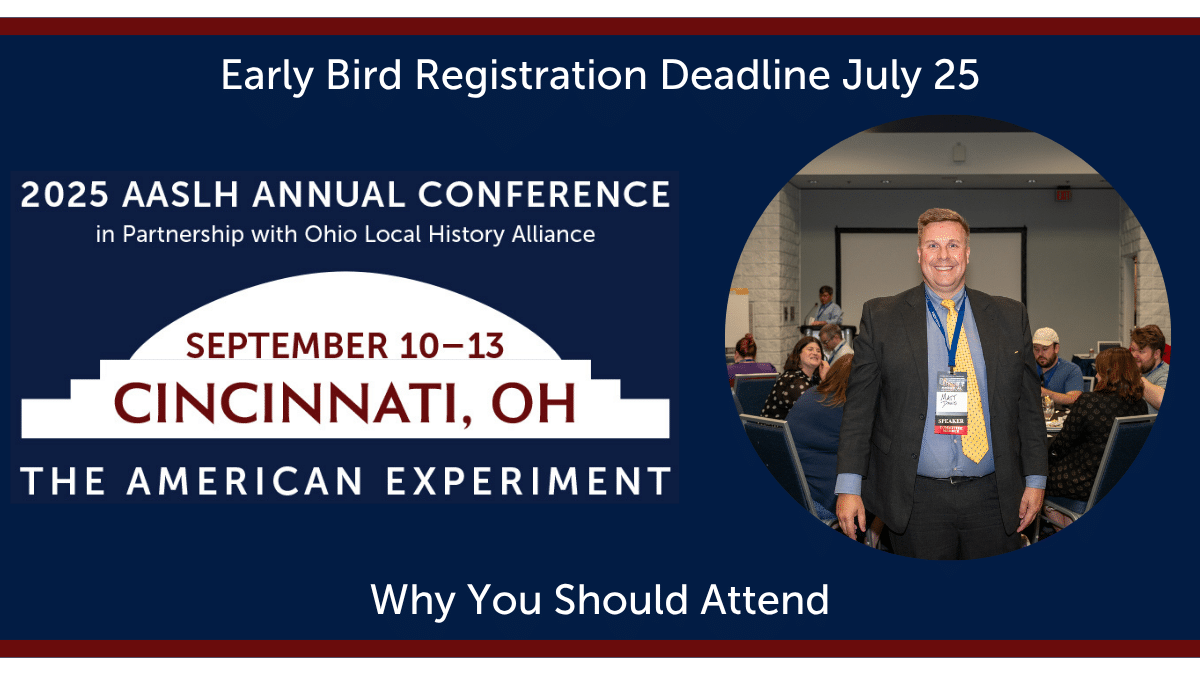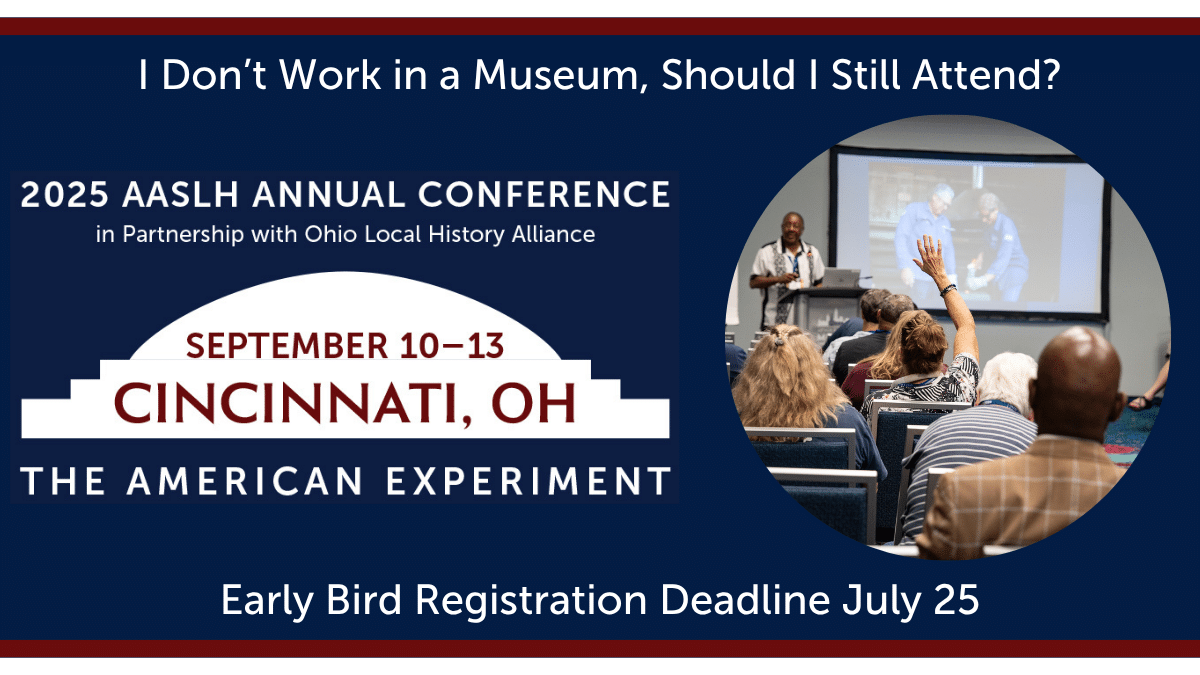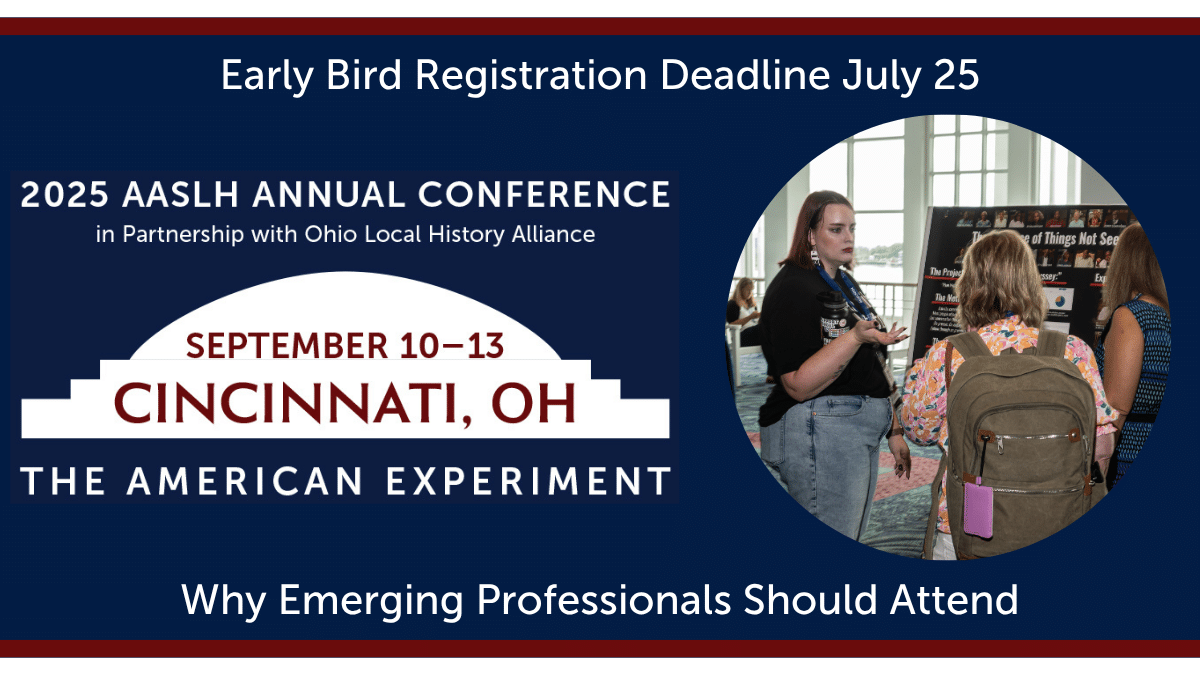
By Bethany L. Hawkins, AASLH COO
When I started working at AASLH as Program Associate in October 2005, one of my first programs was a brand new project, just coming out of the beta testing phase, for an online course called the Basics of Archives. It was AASLH’s first online professional development offering. Funded by the Institute of Museum and Library Services, it was a collaboration of the American Association for State and Local History, the Ohio Historical Society, the Michigan Historical Center, the Council of State Archivists, and the New York State Archives to create, evaluate, deliver, and maintain a comprehensive, self-paced, interactive set of basic archival lesson plans available in both online and traditional on-site workshop formats for those who are not professional archivists. Kathleen Roe, then on staff at the New York State Archives in Albany, and Charlie Arp, then an archivist at the Battelle Memorial Foundation (formerly of the Ohio Historical Society) in Columbus, Ohio, served as project directors, writing much of the original content for the course and serving as co-faculty for many of the early online courses.
In the final grant report for the project submitted to IMLS in the fall of 2005, Arp wrote,
“The introduction into online learning has been a success for AASLH and as the evaluations prove our audience is well pleased with the educational materials we have produced. How helpful these educational materials are will be measured by how often they are used by the archival community. It is our great hope that the educational materials created by this project will serve the archival and historical communities for the next twenty years in one form or another.”
It has not quite been the twenty years Charlie envisioned, but AASLH has offered the Basics of Archives course at least fifty times since it was first launched as a primitive website and each registrant also received a CD-ROM of the course for further reference in the mail. Every year, I would budget for the course to have fewer registrants, but each year it kept growing. It was the gift that kept on giving, not only to AASLH, but also to the history field, especially small museums and historical societies.

Charlie Arp
Since the beginning, however, the one constant in the course has been Charlie Arp. He is retiring as the instructor for this course at the end of the year and deserves our thanks for leading the Basics of Archives for the last eighteen years through numerous course updates, four technical platforms, six AASLH program staff, and hundreds of students. In 2019, he also turned the course into a book for AASLH: Archival Basics: A Practical Manual for Working with Historic Collections.
From this course, AASLH has grown its virtual programming in ways I could never have imagined back in 2006. I am happy this part of our continuing education program continues to grow and evolve, embracing new topics and technologies as our field changes. But, as we continue to innovate, we (especially as historians) cannot forget those who have gone before us.
Thank you, Charlie, for your love for helping make people better custodians of their archival materials. We will be looking for another instructor soon, so, maybe, we will hit the twenty-year mark you set for the course back in 2006. If so, we owe it to you. Cheers on your retirement, and hearty thanks from me, the rest of the AASLH staff, and your hundreds of students.



